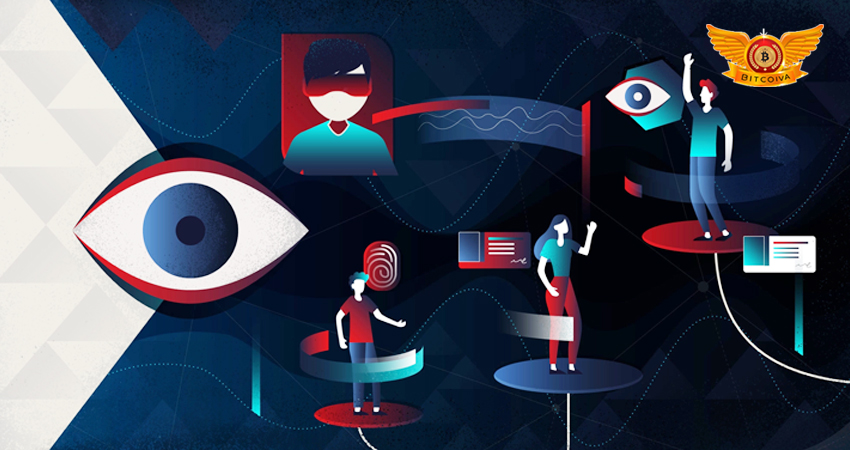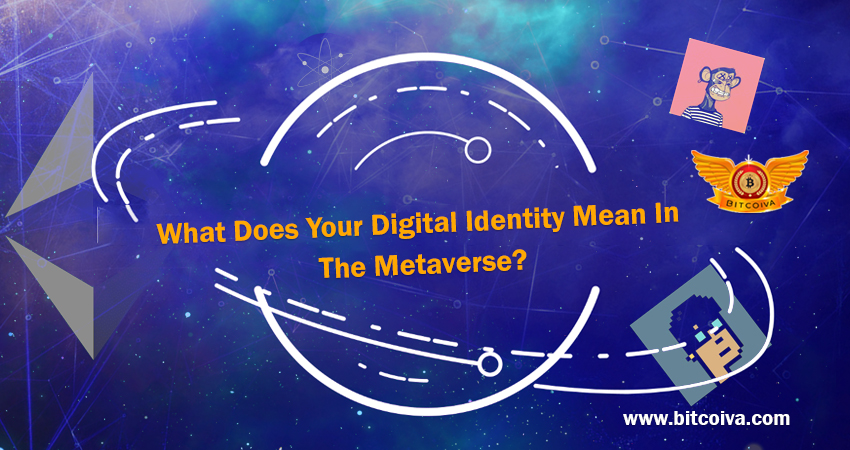Facebook recently declared that it would change its name to Meta as part of the metaverse, its effort to create a brand-new digital reality. With a nod to science fiction, this hybridized and integrated user experience combines social media with gaming, augmented reality, and the most popular cryptocurrency in India, bitcoin, to fuse digital and physical identities.
The metaverse, despite being young, presents a lot of concerns about the future of online authenticity and digital identities. The two most pressing questions are how people and organizations can honestly represent themselves online and what digital identity means in the upcoming internet when the distinction between the physical and digital worlds is blurred.
Here is an explanation of digital identity, how it is changing as the metaverse accelerates, and what you, as an individual or organization, should know about it.
Digital Identity Research
Your identity in the physical world is reflected in a variety of ways, including your appearance, where you went to school, and how you interact with others.
The same is true for your online identity, which is a reflection of both your domain name and virtual address. This identity is based on data gathered about you, such as your search history, prior transactions, or demographic data, which together make up your online profile.
Digital Identity Redefinition in the Metaverse
A decentralized, open platform built on public blockchain technology that depends on digital identities linked to real-world identities is what the metaverse means when it refers to digital identity.
Users in this virtual environment are in charge of their interactions with other users and personal identity information. Users can even give information just when they feel like doing so.
NASA’s incredible scheme to divert an asteroid this September would render its intended target unrecognizable. Scientists say
Additionally, in the metaverse, digital identities can serve as both the representation of individuals and of institutions or organizations. What precisely does this look like? Although a user may have several different digital identities, including professional and personal ones, they are all based on their real-world identities.
This concept foresees the need for an interoperable digital identity or a form of a digital passport that people and organizations may use to explain who they are and why they’re distinct across digital settings.
The key to standing out in the metaverse as it continues to grow is to choose a domain name that accurately describes who you are, what you stand for, and why people should care. This will help the crypto exchange India.

Learning to Be Independent in the Digital World
Utilizing how many personalities and identities affect your personal brand or business is essential in the internet’s evolving future.
In this constantly expanding ecosystem of digital identities, it’s critical to set your business apart from the competition with a distinctive online presence. Using a domain name that is descriptive is one of the most effective methods to achieve this. You can now select from hundreds of descriptive domains, including. Coffee,.pizza,.technology, and. careers, in addition to venerable domain extensions like.com or.net. These descriptors not only support your genuine online identity, but they also contribute to its protection thanks to homographic blocking technology.
The online interactions and behaviors of your entire brand are reflected in your company’s digital identity. Your domain name is one of the first things people notice about this identity. Your domain name conveys information about who you are and what you value in a couple of seconds. You miss the chance to instantly tell the world who you are and why you matter if you compromise your online identity by using a domain name that doesn’t match your company name or industry. With descriptive domains, you can highlight your company name, industry, and significance by using keywords on both the left and right of the dot.
By providing organizations with a genuine online identity and built-in security against online dangers, certain descriptive domain names also perform an important security function.
Knowing who you are and, more significantly, who you want to be online is the first step in creating a genuine digital identity, whether for an individual or an organization. Here are a few additional techniques you may use to forge a powerful digital identity in the developing metaverse when coupled with a descriptive domain name:
Establish a distinctive voice for your professional or personal brand. Spend some time identifying this voice and maintaining it throughout your website, social media, etc.
Be aware of your audience. Doing your study will demonstrate to them that you are aware of their requirements, interests, goals, and aspirations in the cryptocurrency market.
Without compromising your voice or your brand’s mission, create interesting content that is in line with the objectives, passions, or ambitions of your audience.
Your audience can see what you choose to engage with and publish, so choose wisely!
Be aware of your destination. What are you hoping to accomplish online, either as a user or a business? What do you hope to achieve? What are your future plans?
Perception is important for both individuals and businesses since it can mean the difference between site traffic and revenue or no users at all.
A straightforward, descriptive domain, like coding. Careers or brewing. Coffee is the first step in establishing who you are and what you stand for online. It may be used in a matter of seconds to inspire audiences, link to partners, run promotions, and demonstrate your brand and values. The effect? is a distinct and genuine online identity that sets you apart from the growing universe of users.
Visit us at: www.bitcoiva.com

